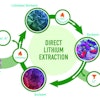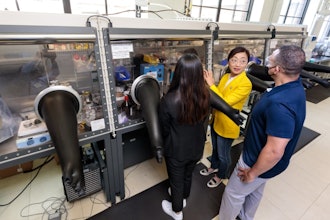SALEM, Ore. (AP) -- Environmentalists and health care providers say Oregon should ban a common industrial chemical from baby bottles, infant formula cans and infant "sippy cups."
The chemical, bisphenol A (pronounced BIS'-fen-all), is used in rigid plastics such as polycarbonate bottles, car bumpers and bicycle helmets, as well as the epoxy resins used to line food and drink cans.
Canada and states such as Minnesota, Connecticut, Washington and Maryland are moving to ban it in products for youngsters.
Supporters of the action against bisphenol A say it is a hormone disrupter, developed in the 1930s as an estrogen replacement and adopted for plastics in the 1950s. They say it has been linked to numerous health problems, such as cancer, heart disease, brain damage and early puberty.
Ban supporters cite a recent expression of concern by federal health agencies over its potential effects on the brain, behavior and prostate glands of fetuses, infants and young children.
"If you do just a little research, as a parent, you'll drive yourself crazy," said Susan Beal, a mother from Portland who was accompanied by her 20-month-old daughter, Pearl.
She said she struggled to nurse her daughter but eventually had to turn to formula.
The child was "constantly and methodically exposed to bisphenol A for the first year of her life and knowing what even small amounts of this chemical can do is horrifying," she said.
At the hearing before the Senate environment committee, lobbyists for industry and retail groups said scientists haven't proven that the chemical is harmful to humans, and the U.S. Food and Drug Administration hasn't decided to ban it.
They warned of unintended consequences ranging from choking the supplies of formula for federal programs for impoverished mothers and children to bare shelves at food banks. Some said the bill was overly broad and would apply to food and products for adults -- such as canned vegetables.
Oregon canners don't have alternatives for the chemical in can liners, said Craig Smith of the Northwest Food Processors Association. The bill "will effectively shut down the canned food industry in the state of Oregon," he said.
Sen. Jackie Dingfelder of Portland, chair of the committee, rejected that argument, saying the bill clearly specifies food and drink "primarily intended" for children under 3.
She also said it's up to states to press the federal government to take action against toxic chemicals, which it does rarely and reluctantly.
"The federal chemical regulatory process is broken," she said at a news conference. "It's seriously broken."
The measure is on a brief list of environmental measures under consideration at the Legislature's February special session, including:
-- A proposal to ban plastic bags at the checkout counter.
-- A bill to make permanent the state's ban on offshore drilling for gas and oil within its three-mile jurisdiction.
-- A bill aimed at greenhouse gas emission targets in Oregon's six largest urban areas.






















